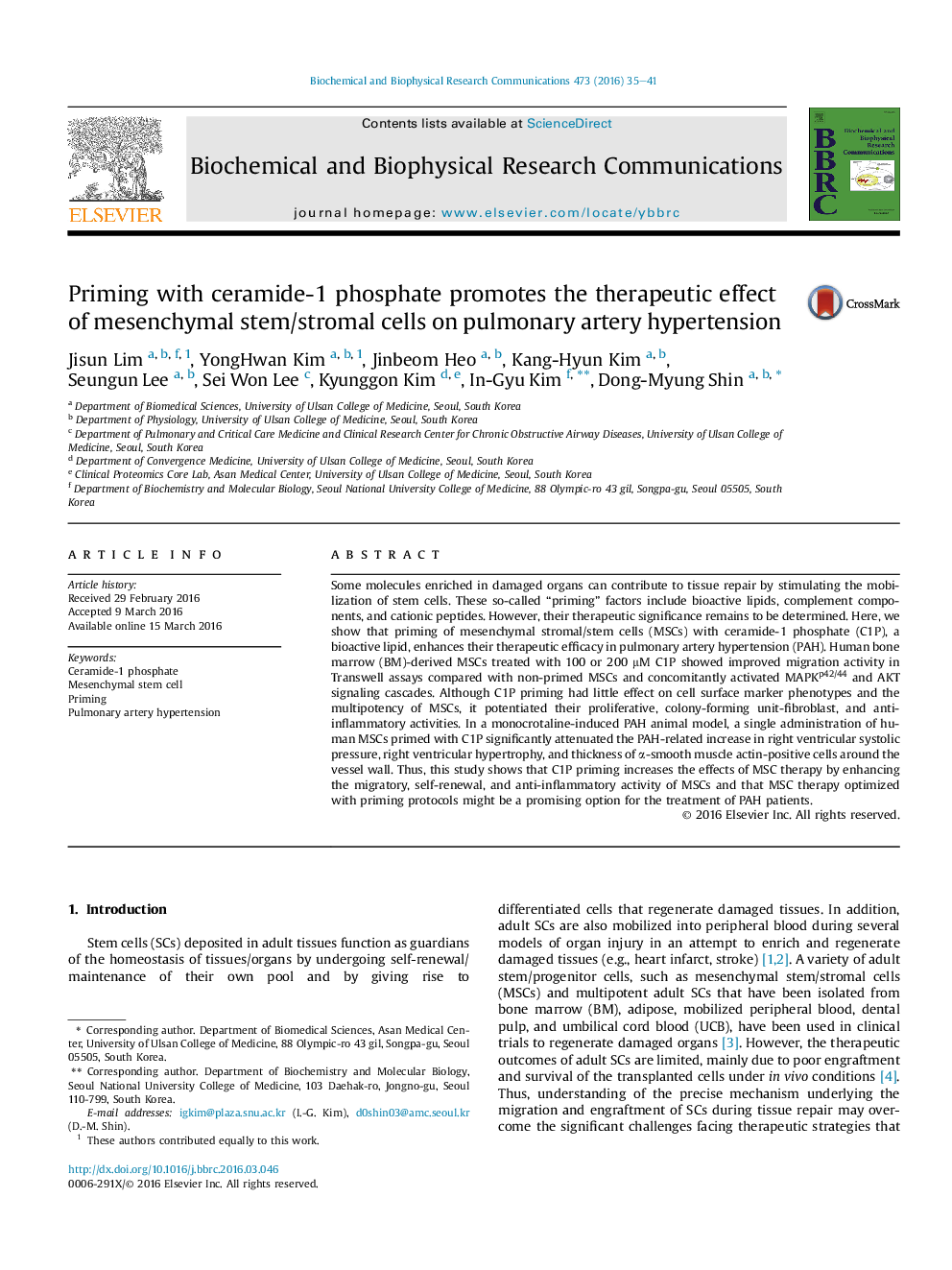| Article ID | Journal | Published Year | Pages | File Type |
|---|---|---|---|---|
| 1927852 | Biochemical and Biophysical Research Communications | 2016 | 7 Pages |
•Human BM-derived MSCs primed with C1P have enhanced migratory activity.•C1P primed MSCs increase proliferation, self-renewal, and anti-inflammatory capacity.•C1P priming enhances the therapeutic capacity of MSCs in a PAH animal model.
Some molecules enriched in damaged organs can contribute to tissue repair by stimulating the mobilization of stem cells. These so-called “priming” factors include bioactive lipids, complement components, and cationic peptides. However, their therapeutic significance remains to be determined. Here, we show that priming of mesenchymal stromal/stem cells (MSCs) with ceramide-1 phosphate (C1P), a bioactive lipid, enhances their therapeutic efficacy in pulmonary artery hypertension (PAH). Human bone marrow (BM)-derived MSCs treated with 100 or 200 μM C1P showed improved migration activity in Transwell assays compared with non-primed MSCs and concomitantly activated MAPKp42/44 and AKT signaling cascades. Although C1P priming had little effect on cell surface marker phenotypes and the multipotency of MSCs, it potentiated their proliferative, colony-forming unit-fibroblast, and anti-inflammatory activities. In a monocrotaline-induced PAH animal model, a single administration of human MSCs primed with C1P significantly attenuated the PAH-related increase in right ventricular systolic pressure, right ventricular hypertrophy, and thickness of α-smooth muscle actin-positive cells around the vessel wall. Thus, this study shows that C1P priming increases the effects of MSC therapy by enhancing the migratory, self-renewal, and anti-inflammatory activity of MSCs and that MSC therapy optimized with priming protocols might be a promising option for the treatment of PAH patients.
